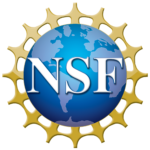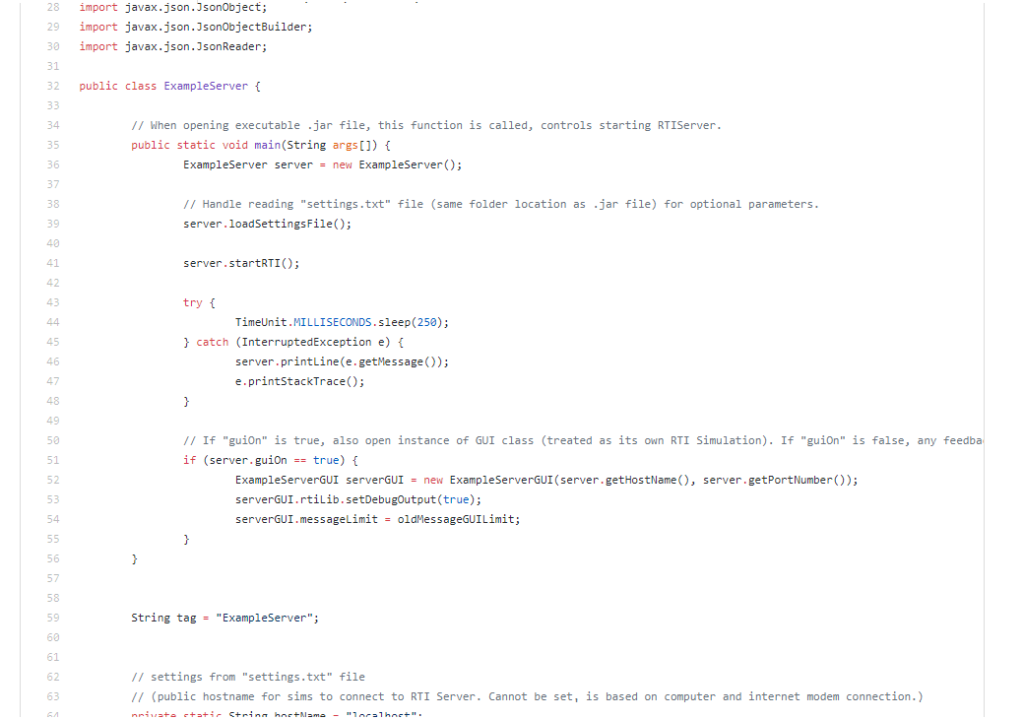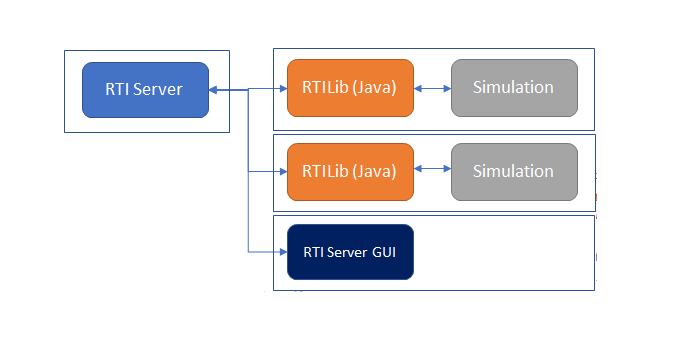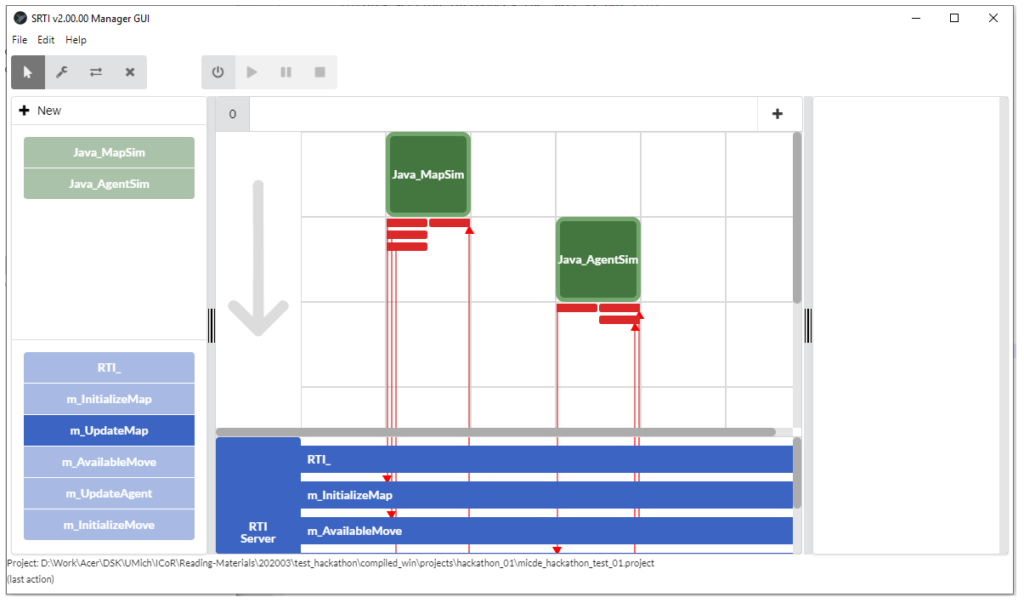Overview
The “Simple Run-Time Infrastructure” (SRTI) is an open-source framework that can be used for data-communication across simulator programs in different languages. Written to meet the needs of the ICoR group, it was built to meet the following challenges (not met by other software solutions):
Open-source and organized to be easily rewritten for other languages as necessary.
Simple to use for users from all backgrounds.
Support a variety of simulators and systems without need to recompile on separate machines.
Description
There are 3 core components to the SRTI system:
RTI Server: written in Java. This acts as a central hub for all simulators to connect to in order to exchange data.
RTI Lib API: written in Java and C++. To be rewritten as necessary to support other languages, acts as a library of functions for a user to call upon in their simulator to simply connect to an open RTI Server.
The User’s Simulator(s): up to you!
SRTI v1.00.00 vs v2.00.00
In addition to the core v1.00.00 version of the SRTI, we developed v2.00.00, to better support simulation system management with less effort on the user, without the need to add code to simulators to make them compatible!
This adds a new component called the RTI Wrapper to act as a in-between connection, between the RTI Lib API and the user’s simulator.
Along with this, a new GUI (called the SRTI v2 GUI) was developed to help design SRTI v2.00.00 simulation systems, and to execute them with an intuitive interface.
Team
Developer(s): Andrew Hlynka, Harvey Lu, Lichao Xu,
Feedback Coordinator: Szu-Yun Lin
Supervisors: Dr. Sherif El-Tawil, Dr. Vineet Kamat, Dr. Atul Prakash
Downloads
See “Downloads” page: https://icor.engin.umich.edu/downloads/

This project is supported by the United States National Science Foundation (NSF) through grant 1638186 (CRISP Type 2: Interdependencies in Community Resilience (ICoR): A Simulation Framework). Any opinions, findings, conclusions, and recommendations expressed on this site are those of the project team members and do not necessarily reflect the views of the NSF.



